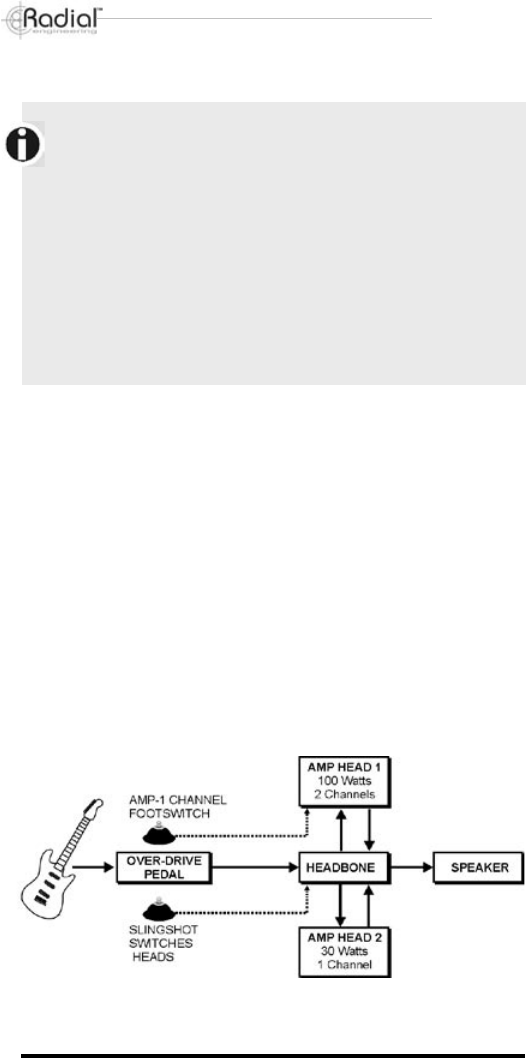
INTRODUCTION
Whether you have a Headbone VT or a Headbone SS, the
setups and connections are identical. For simplicity, this
manual will discuss the Headbone VT. It is important to note
that because of the very different nature of solid-state amps
and valve-tube amps, each Headbone’s internal circuit is
different. The Headbone VT is exclusively designed for
valve-tube amps; the Headbone SS is exclusively designed
for solid-state amps. As such the SS and VT are not inter-
changeable. Attempting to use a solid-state amp with the
Headbone VT (or vice versa) could damage your amp and/or
the Headbone. This would void your warranty. Please consult
your dealer and make sure you fully understand the owner-
ship disclaimer before using the Headbone.
When developing the Headbone, we asked guitarists: “What would be
the ultimate guitar setup?” Ask 10 guitarists this question and you will
likely get 10 different answers. The reason for this is simple: There are
no right answers as the possibilities are endless. So where do you start?
You need a concept. The following is a setup concept that will help get
those creative juices flowing. It combines simplicity with awesome stage
performance.
The guitar connects to the effects on the pedalboard. The pedalboard is
connected to the Headbone input. The Headbone connects to the inputs
of the two amplifier heads. The amplifer outputs are brought back to the
Headbone which, in turn, connects to the speaker cabinet. In the example
below, amp head-1 is a 100-Watt 2-channel amp with one channel set to
clean and the other set to saturated overdrive distortion. Amp head-2 is
a low power 30-Watt amp that would be driven ‘hard’ for natural output
tube overdrive. Add a good distortion pedal and all of a sudden your setup
becomes a tone monster.
True to the Music
Radial Engineering Headbone Owner’s Manual
1
Typical Headbone setup with a channel
switching head and a single channel head.


















